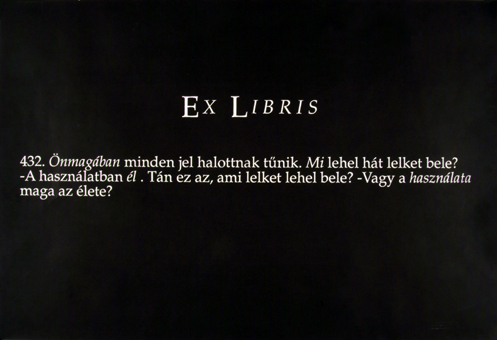Joseph Kosuth, often referred to as the father of conceptual art, is concerned with art as an idea, examining the relationship between things and the words that define them. Barely 20 years old, in 1965 he exhibited One and Three Chairs, a tautology-based work that has since become a cornerstone of Conceptual Art. With the group of works later referred to as the “dictionary works,” Kosuth launched one of the defining directions of modern art, privileging the concept contained in the work over its sensuous-physical appearance. According to Kosuth, artistic problems are fundamentally linguistic in nature—language games—thus, in dialogue with Wittgenstein, he initiated art’s first “linguistic turn.” In his view, texts, ideas, and opinions about the nature of art are themselves art. The essence of art, therefore, can be examined through the analytic investigation of artistic language and the concept of art itself. In his groundbreaking essay Art After Philosophy (1969), Kosuth urged artists to continually question, through their practice, what art means and what constitutes an artwork. Ex Libris is a group of works in which Kosuth reproduces quotations from seminal thinkers (Wittgenstein, Rousseau, Champollion, Nietzsche, etc.)—taken from their books (ex libris)—as well as dictionary entries, printed in different languages on neutral, minimalist backgrounds. Each series usually consists of 100 numbered silkscreen prints. The works presented in this exhibition display Kosuth’s Hungarian roots (he represented Hungary at the Venice Biennale in 1993), as he presents philosophical reflections on language in the Hungarian language.
